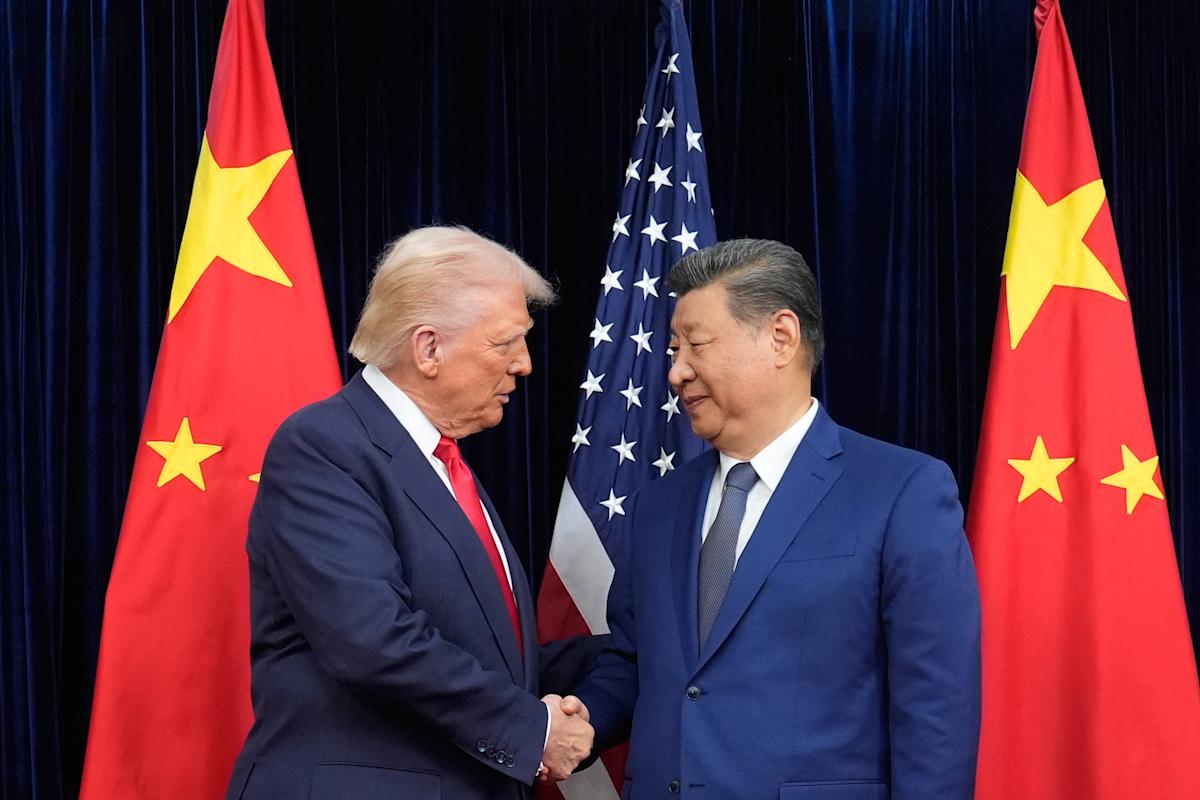China to suspend some rare earth curbs, probes on US chip firms
(Bloomberg) — China will effectively suspend implementation of additional export controls on rare earth metals and terminate investigations targeting US companies in the semiconductor supply chain, the White House announced.
The White House issued a fact sheet on Saturday outlining some details of the trade pact agreed to earlier this week by President Donald Trump and Chinese leader Xi Jinping that aimed to ease tensions between the world’s largest economies.
Most Read from Bloomberg
Under the deal, China will issue general licenses valid for exports of rare earths, gallium, germanium, antimony and graphite “for the benefit of U.S. end users and their suppliers around the world,” the White House said, meaning the effective removal of controls China imposed in April 2025 and October 2022. The US and China previously said Beijing would suspend more restrictive controls announced in October 2025 for one year.
Washington will also pause some of Trump’s so-called reciprocal tariffs on China for an additional year and is halting plans to implement a 100% tariff on Chinese exports to the US that was threatened for November. The White House also said that the US will further extend the expiration of certain Section 301 tariff exclusions, currently due to expire on Nov. 29, 2025, until Nov. 10, 2026.
The Chinese Embassy in Washington did not immediately respond to a request for comment on Saturday.
The landmark summit between Trump and Xi, their first face-to-face meeting of the US president’s second term, saw the leaders stabilize relations in the short term after an escalating trade fight that had roiled markets and sparked fears of a global downturn.
Under their agreement, according to the White House, China agreed to pause sweeping controls on rare-earth magnets in exchange for a US agreement to roll back an expansion of curbs on Chinese companies. China had used its dominance in the processing of rare-earth minerals as leverage, threatening to restrict their flow to the US and allies countries.
The US also agreed to halve a fentanyl-related tariff to 10% from 20%, while Beijing will resume purchases of American soybeans and other agricultural products. The US has said China will buy 12 million metric tons of soybeans during the current season, and a minimum of 25 million metric tons a year for the next three years. Trump on Friday indicated he would like to remove all of the fentanyl-related tariffs if China continued to crack down on exports of the drug and precursor chemicals used to make it.



Leave a Comment
Your email address will not be published. Required fields are marked *